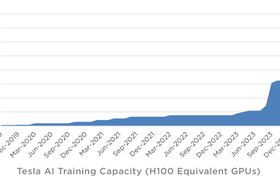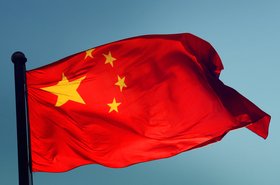Chinese export controls on semiconductor materials are causing supply chain issues with Western manufacturers, leading to concerns that there could be another chip shortage on the horizon.
According to a report from the FT, the restrictions on shipments of germanium and gallium, which were introduced by the Chinese government last year, have led to prices of the materials nearly doubling in Europe over the previous 12 months.
Gallium is needed for the production of gallium nitride (GaN), a wide-bandgap material that can handle higher amounts of power than silicon, meaning GaN-based chips can be more efficient and durable than their silicon counterparts. Meanwhile, germanium is used to manufacture high-speed transistors due to its high electron mobility, in addition to fiber-optic cables.
According to the US Geological Survey, China produces 98 percent of the world’s supply of gallium and 60 percent of germanium.
When the sanctions were introduced in August 2023, the move was seen as retaliation for chip export restrictions announced by the Netherlands, but pushed for by the US. At the time, China said the export curbs had been introduced to protect its “national security and interests.”
As a result of the restrictions, according to Chinese customs data published by the FT, Chinese gallium exports also plunged from 28,000kg in the first half of 2023 to 16,000kg in the second half.
In comments to the news outlet, Markus Roas, metals business manager at electronics and semiconductor materials supplier Indium Corporation, said that there was a very real risk of the company running out of its germanium supply.
Meanwhile, Jan Giese, senior manager of minor metals at Frankfurt-based trader Tradium, told the FT that the company had only been able to obtain a “fraction of what we bought in the past” since the new licensing restrictions came into force.
More recently, antimony, a mineral used in precision optics, was also placed under export restrictions by China, following a ban from the country on the export of rare earth processing technologies which came into force in late December 2023.







